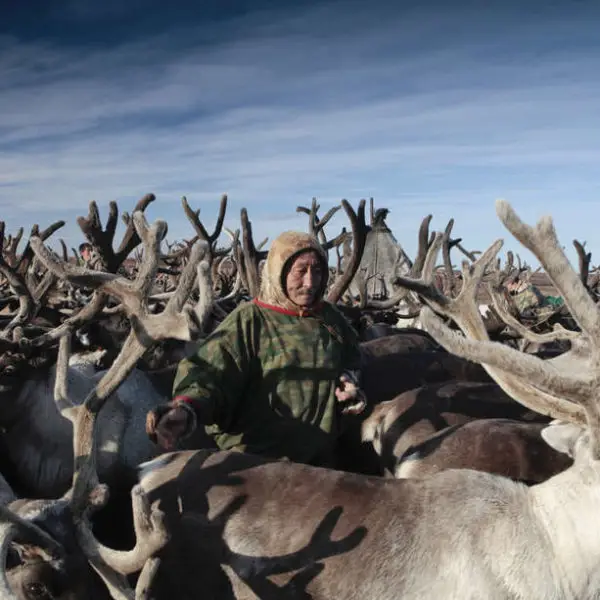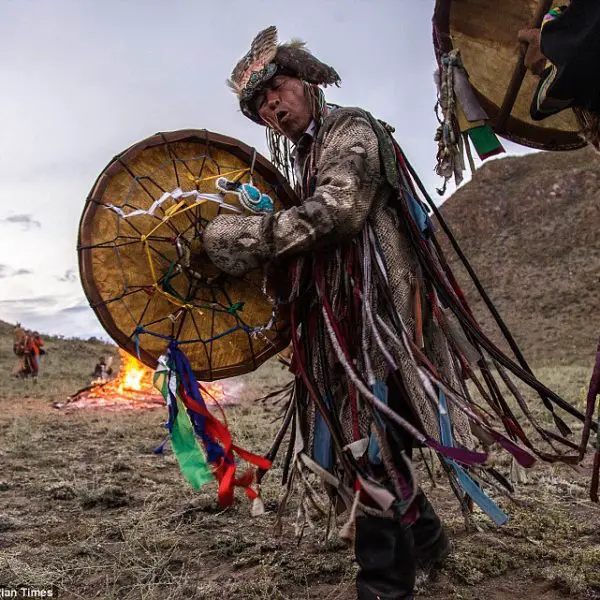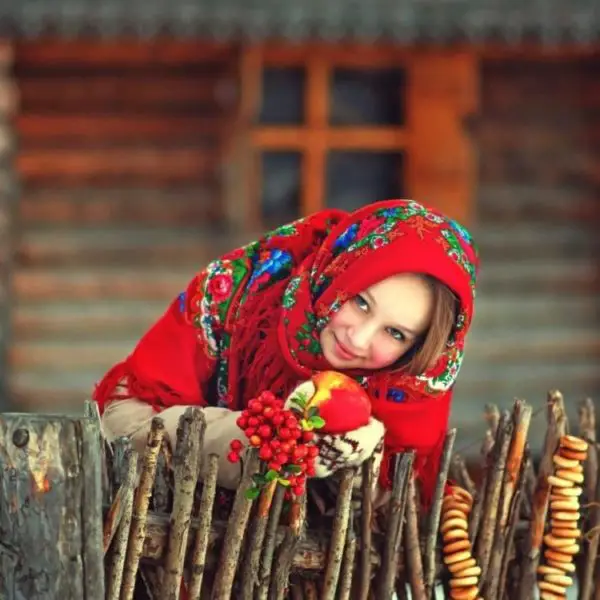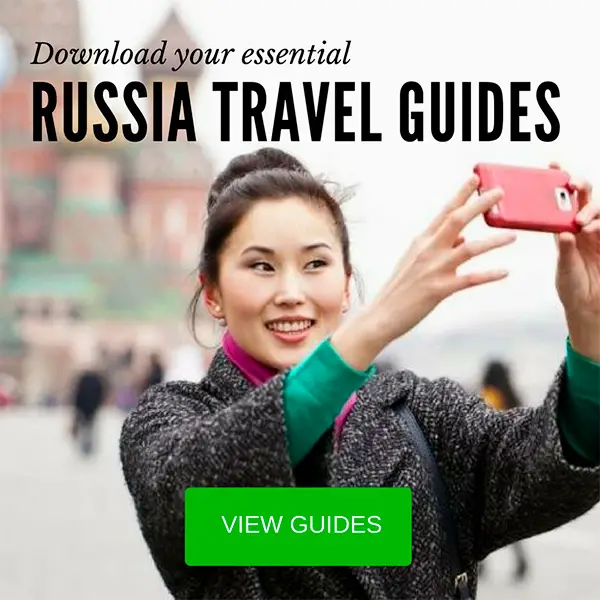Travel in time with indigenous Russia
Indigenous Russia refers to early tribes from the Far North, Central and Southern Siberia and the Far East, who live in the same territories and keep the same way of life and traditions over centuries. 41 so-called tribes were recognized by Russian law in the year 2000 as a “Minor Indigenous People of Russia”.
Indigenous Russia, who are we referring to?
These are the only groups that are legally protected as Indigenous people. To meet the requirements, a group of people must number fewer than 50,000 people, maintain a traditional way of life, inhabit certain remote areas of the country, and identify as a distinct ethnic group.
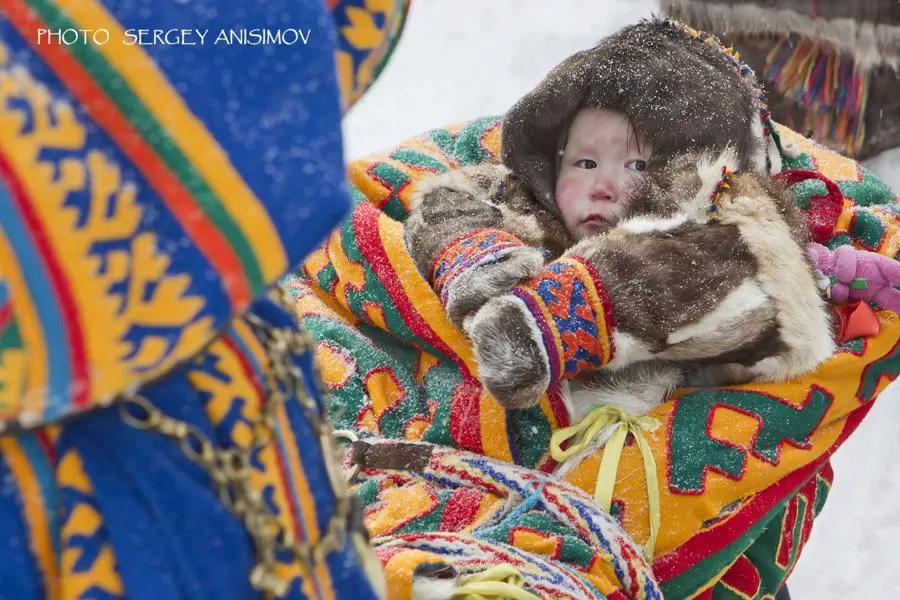
Some groups are disqualified because of their larger populations such as the Yakut, Buryat, Komi, and Khakas; others are currently striving to get recognition. The smallest of these Indigenous groups are the Enets (350 people) and the Oroks (450 people), while the largest are the Nenets and Evenks, which both have nearly 30,000 members.
Some Russian aborigines – are nomads, who migrate every year through Arctic tundra with their reindeer herds. The others, inhabitants of forest tundra or taiga, live in villages, doing traditional activities, such as reindeer herding, hunting, fishing and gathering, living in-sink with mother nature.
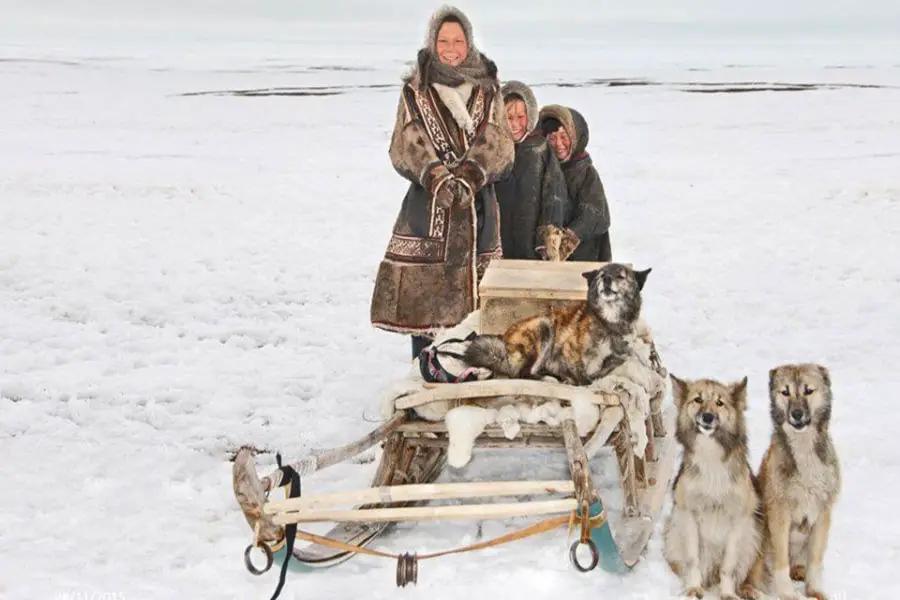
Nomads of Russia – Language and religion
The languages the different tribes use are various, but many of them belong to Uralic – Yukagiran, Altaic and Eskimo-Aleutian ethnolinguistic group.
The religion of people in indigenous Russia is strongly connected with nature. This type of religion called animism means that non-human entities, such as plants or animals, possess a spiritual essence as well as the natural phenomenon, such as sun, moon, stars, water and fire. They believe that each plant or animal has a soul. The ancestral cult is also an essential part of their religion. The belief that worshipping these spirits – spirits of their ancestors, spirits of animals and plants, earth – water spirits – will help them solve their problems.
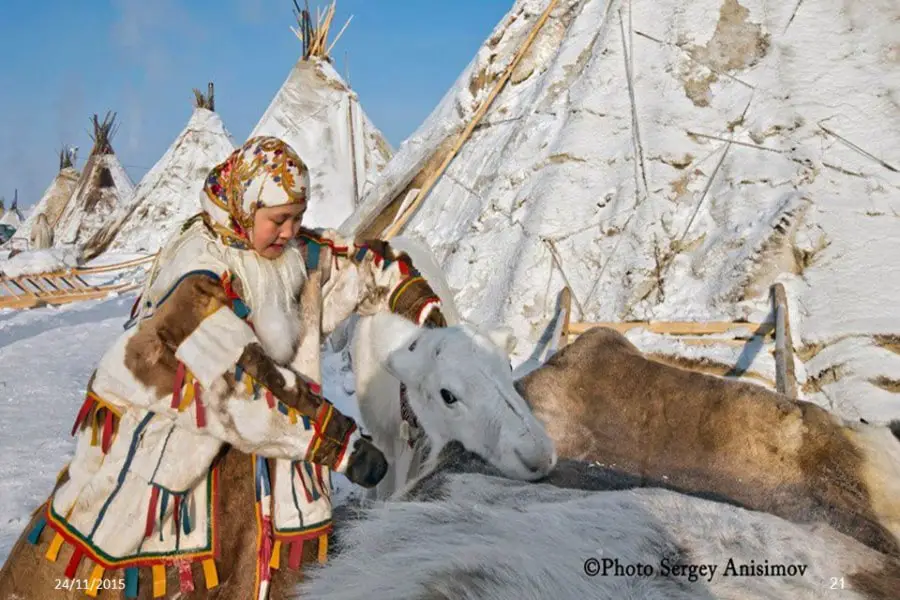
A shaman is a person who has access to spirits and an influence in their world. Within indigenous Russian communities, shamans were often worshipped as saints and they might have a bigger influence than leaders of the tribe. They practice rituals with ritual dances and drum sounds in the ecstasy state thanks to intoxicating herbs. Thanks to their knowledge of herbs as a cure, shamans were also respected healers of illness and diseases.
The Nenets – largest indigenous Russia group
Nenets, also called Samoyeds, are one of the most common tribes in the Yamal peninsula in northern arctic Russia. They claimed the territory far above the Arctic circle which is ice-covered for the most of the year – “the end of the world” and it’s their home for an over thousand years.
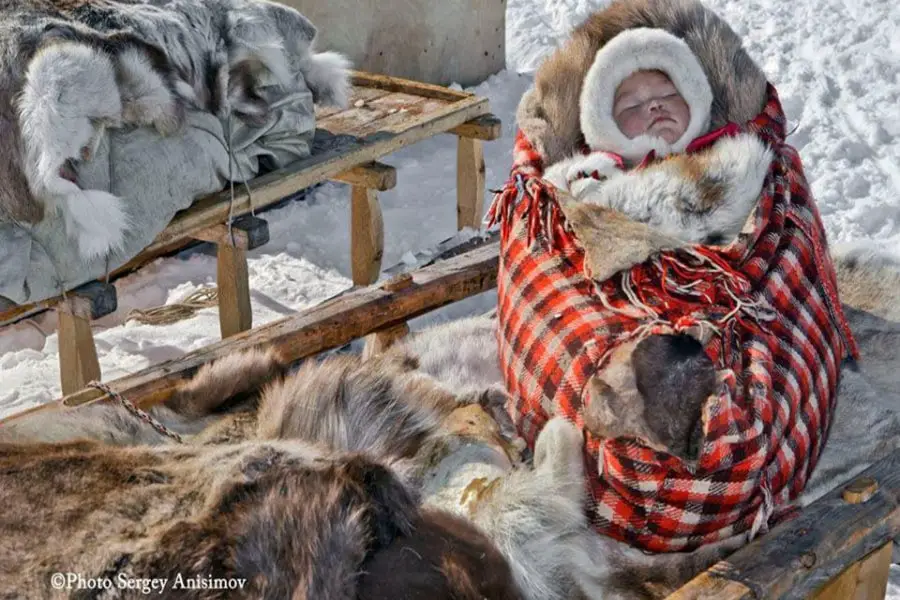
Nenets – are nomads, who have moved seasonally with their reindeer along the ancient migration routes. During the winter Nenets herders prefer pastures in the southern forest called taiga, and during warmer months they travel to the north to the land of permafrost.
The reindeer is everything for the – home, food, warmth and transportation. They use reindeer bones and hide for building tents (tepees), which are called “choom” or “mya” and also make their coats from reindeer hide. The Nenets diet contains mostly reindeer meat, which is served raw, frozen, or fish such as white salmon. During summer months they also gather cranberries or other forest fruit. When a reindeer is injured and not able to walk they slaughter him and drink his fresh blood (while still hot), which is packed with essential vitamins.
Threats to indigenous Russia
In recent days, people in indigenous Russia are facing many threats to their culture and traditional way of life. One of the severe issues is sedentary lifestyle and assimilation with Russian language and culture. Migration of the Russian population to the north in past two centuries had a strong impact on indigenous communities. 30 years ago 70% of indigenous people of Siberia preferred nomadic or semi-nomadic lifestyle, now it’s only 10%.
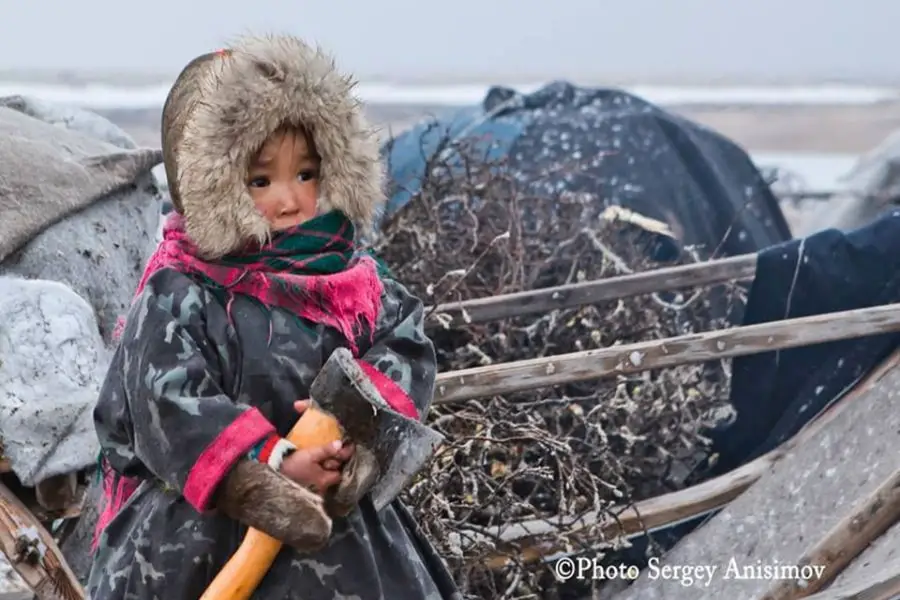
After the end of communism young adults began to leave the villages and move to the bigger cities. Unfortunately, many of them struggle to adapt to an urban lifestyle and struggle with alcoholism, mental issues and unemployment.
Another common issue of native Russian people is environmental. “Thanks” to the climate change, the permafrost is melting and the land is affected infrastructure, resource extraction and pollution. “We are afraid that with all these new industries, we will not be able to migrate anymore. And if we cannot migrate anymore, our people may just disappear altogether” (Nenets herder Sergei Hudi).
People in indigenous Russia have already proved that they are strong, resilient and adaptive to follow their ancestor’s lifestyle, culture and traditions. Now it’s also on us to support them and help them survive and keep a sustainable way of life.
All photos from this blog made by Sergey Anisimov, a photographer and engineer based in Salekhard, Russia. You can see more of his work on his website.
Related posts
Related Tours
If you have any urgent questions or enquiries, please give us a call +61 412 587 785
